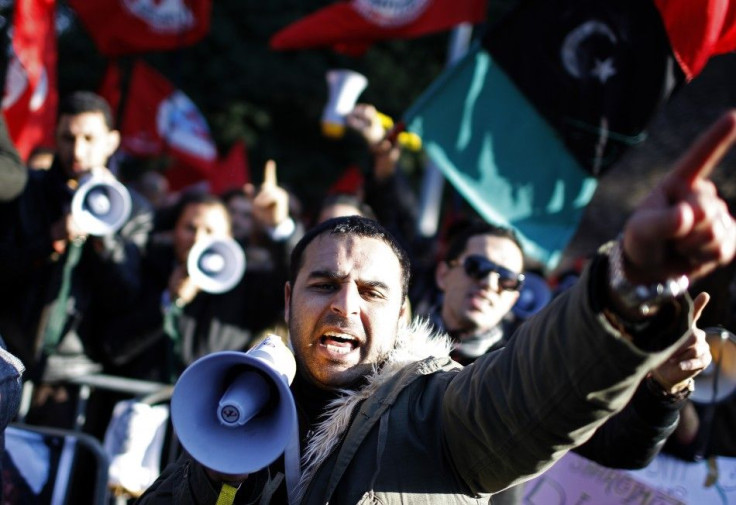U.S. crude oil prices touch $100 for first time since Oct. 2008 on Libyan chaos

The price of oil crude oil futures touched $100 per barrel for the first time since October 2008 on deepening worries over the political chaos and violence in oil-rich Libya.
Forces loyal to Moammar Gaddafi have battled with anti-government protesters in cities across the country, as the nation’s economic infrastructure appears to have come to a standstill.
West Texas Intermediate crude for April delivery, which hit and surpassed the $100 figure earlier today, has soared 18 percent just since Valentine's Day. Brent crude on the ICE futures exchange, which rose past $100 earlier this year, closed at $111.36 per barrel.
Meanwhile, French oil company Total S.A. (NYSE: TOT) has become the latest foreign oil producer to scale back its oil production in Libya. Italian oil giant Eni SpA (NYSE: E), the largest producer in Libya, and Germany's Wintershall AG are also idle. Spain's Repsol-YPF and Austria’s OMV have also ceased operations.
All told, about 1-million barrels-per-day of Libyan oil production has been shut down, estimated Barclays Capital. European nations will suffer the brunt from the reduced production – according to media reports, Ireland and Italy import more than 20 percent of their oil needs from Libya. By contrast, the U.S. imports less than 1 percent of its crude from Tripoli.
Other OPEC producers, including Saudi Arabia, have assured they would make up for the loss of Libyan oil by ramping up supply. But that hasn’t eased the fears of investors who appear to fear longer-term disruptions.
Heightening fears even more are threats by Gaddafi of sabotaging his own nation’s oil infrastructure.
“The Libyan economy and civic life is grinding to a rapid standstill as the country battens down the hatches to concentrate on playing out the battle for its political future, with a significant human and economic toll already apparent as the Gaddafi regime digs in and uses all means at its disposal to maintain control,” said IHS Global Insight analysts Catherine Hunter and David Hartwell.
“With the leadership intent on making its survival as bloody as necessary, the near-term outlook in Libya is for further conflict and unrest, with the weight of probability suggesting that these are the dying hours of the Gaddafi regime; his legacy will to an extent be determined in the coming days as disparate forces attempt to fill the political vacuum, with oil set to play an important part in re-establishing order.”
© Copyright IBTimes 2025. All rights reserved.





















